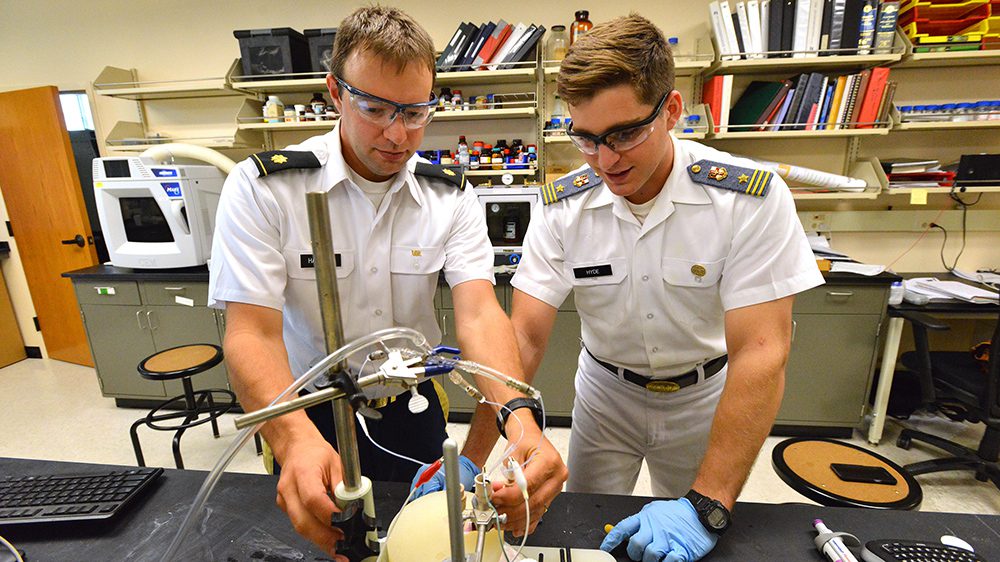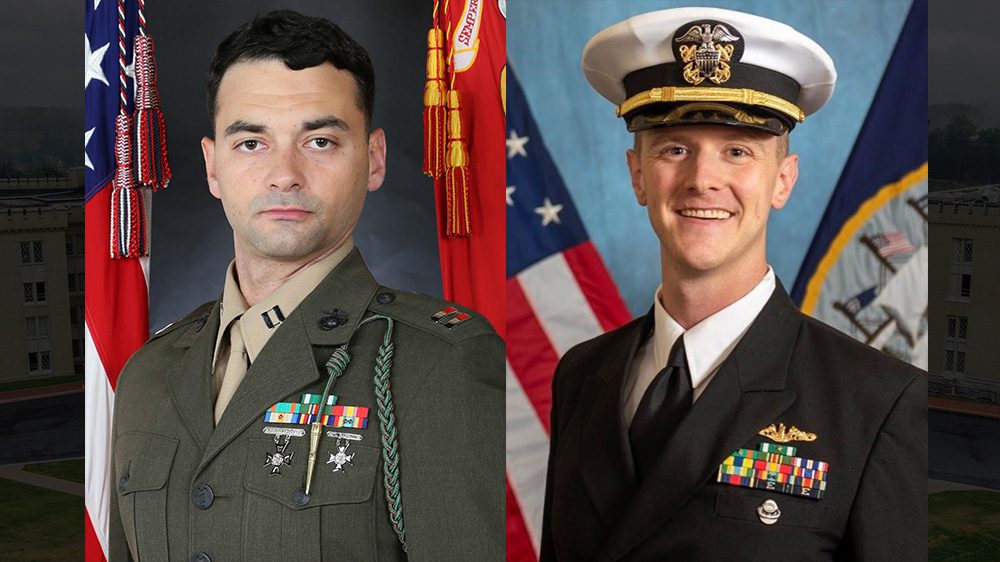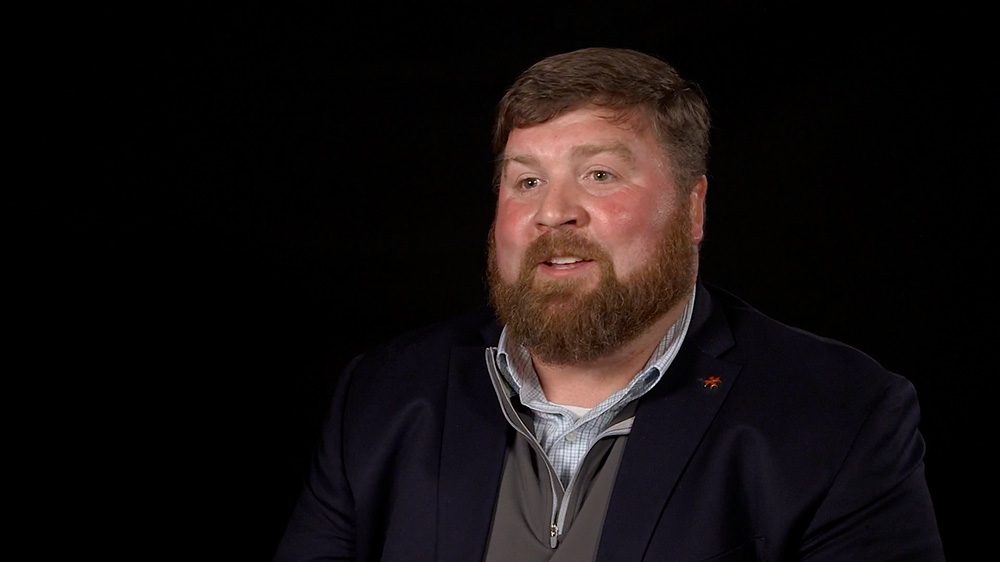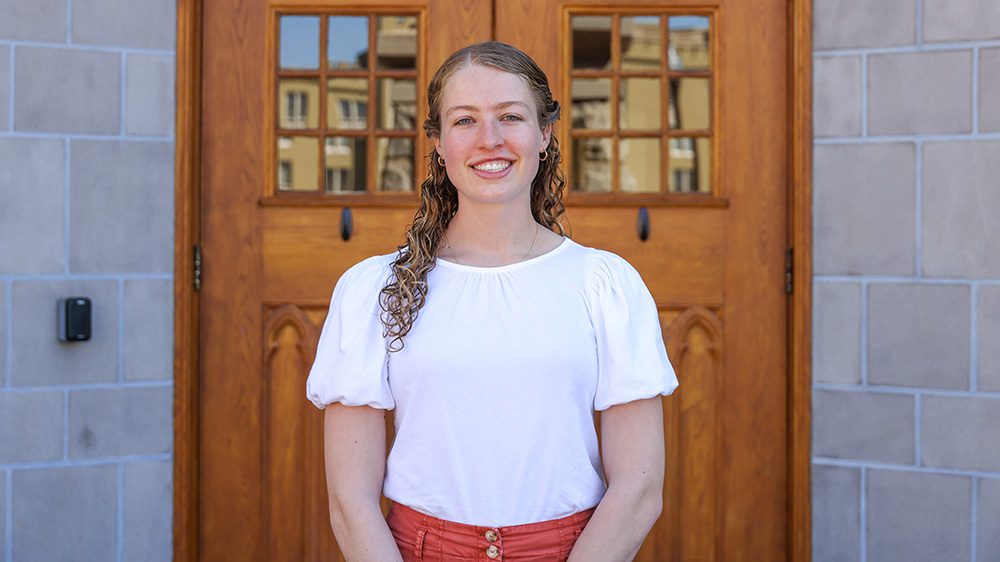Lt. Col. Daniel P. Harrison ’05, Ph.D., VMI chemistry professor, specializes in and teaches single-crystal X-ray diffractometry. In it, he seeks to foster a deep understanding of the three-dimensional makeup of molecules that his cadet researchers build at the atomic level by bombarding very small crystals with X-rays, analyzing how they react, and determining their structures. That might not seem like an important field, Harrison admits, until you consider that 14 scientists have received the Nobel Prize in Chemistry or Physics for work in the field.
Growing up in rural Indiana, Harrison wasn’t aware of single-crystal X-ray diffractometry. But he was interested in chemistry. “Three things turned me toward chemistry,” he recalls, “tennis balls, glow sticks, and fireworks. My brother and I would soak tennis balls in gasoline and set them on fire, and I found myself wondering why certain things burned faster than others. Glow sticks’ light comes from a chemical reaction called chemiluminescence, while fireworks’ colors come from electronic transitions. So, I started wondering why these reactions occurred.”
These questions made Harrison apply himself to his chemistry classes. His strength in mathematics helped him decide to study chemistry in college. “Chemistry is math-based, and, like math, it follows rules and lets you quantify things.” Yet, Harrison also saw something more. “It also offered a way to come to a deeper understanding of how the world worked and to address questions that needed answering.”
The many veterans in his family had told stories about military life, from World War II to the Persian Gulf War. All of them had been enlisted and gave him the same advice: “If you go into the military, you need to be an officer.” After finding VMI on his own, he visited during his senior year in high school. He liked the discipline and the structure of cadet life. “As in science and math,” Harrison said, “the rules are the rules.” However, the Honor Code stood out the most. “I didn’t like the dishonesty of many people I knew growing up. So, being in an environment where I could count on others’ honesty was very appealing.”
Almost immediately, he knew chemistry was the right major for him. “For the first time in my life, it was good to be a nerd. I also felt like [being] part of a family, thanks to the faculty,” he continued. “They were nurturing and facilitated a family atmosphere. I worked with professors like Steve Riethmiller [’63] and Henry Schreiber on projects in the laboratory and helped them with projects at their homes.”
Harrison credits chemistry with providing what he described as “an ability to explore.” Asked if he was influenced particularly by a professor, he replied, “If I had to choose one, it would be [Colonel] Daren Timmons.” Timmons taught at VMI from 2001–16 and taught Harrison inorganic chemistry. According to Harrison, Timmons “brought enthusiasm, excitement, and clarity to the subject and all the others he taught and so showed us the intricacies of nature.” Besides providing an example of effective teaching, Harrison says, “he showed me how to be a good leader and a good mentor.”
It was Timmons who urged Harrison to do research, and, in the course of it, Harrison discovered what he calls “a clean molecule.” It was, as he put it, “a powerful moment” because “I discovered it. I made it.” That moment, he relates, illustrated the essence of chemistry. “It’s about the discovery of seeing something new and the need to create ways to test things.”
Harrison left VMI as a distinguished graduate with a firm foundation in chemistry theory and practice and the confidence to pursue graduate studies. “The experience opened my eyes. It showed me that we are capable of so much more than we think—and what we’ve been told. At VMI, I learned I was my own biggest barrier and that I had to knock it down so I could create.”





